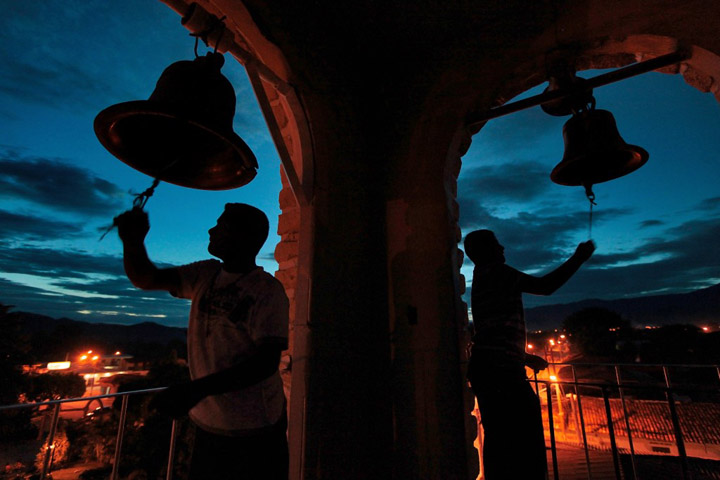




right-cilck and select full screen
HONDURAS: A NATION IN TRANSITION

ALL PHOTOS COPYRIGHT PETER PEREIRA
The descent into what is considered one of the most dangerous airports in the world, on an overcast day is to say the least, memorable. I was flying into Tegucigalpa airport in Honduras on assignment for two projects I wanted to photograph. One was to document a series of American doctors who donate their time to offer medical assistance to villagers in Honduras, and the other was to visually document life in the Honduran countryside. I wanted to better understand the reasons so many Hondurans have illegally moved to the United States, and I wanted to combine the material I have already shot in Guatemala, Haiti and in the future Nicaragua and El Salvador for a book on Central America.
The speed of the bus taking me from the capital city to the remote village of Guaimaca was constantly modulated in an effort to avoid the huge potholes on the main road. Some of them were big enough to swallow a motorcycle. Yet, the majestic, mountainous landscape soon took my mind of the roads.
Honduras is bordered by Guatemala to the west and El Salvador and Nicaragua to the south. Like its neighbors, Honduras struggles to not be left behind as the west rolls into the twenty first century at full steam. According to the World Bank Honduras is the third poorest country in the Western Hemisphere (Haiti, Nicaragua). With more than 50 percent of the population living below the poverty line and 28 percent unemployed, Hondurans frequently turn to illegal immigration as a solution to their desperate situation. The Department of Homeland Security has noted an 95 percent increase in illegal immigrants coming from Honduras between 2000 and 2009, the largest increase of any country.
The next day as I rode into the outskirts of Guaimaca I could hear the commotion atop the garbage pile; the smell was nearly overwhelming. Children were sifting through the heaps of garbage in Climatorio, Honduras looking for things to wear, sell, eat. Some sent by their parents to see what they could find, others had now become dependent on the things others no longer want. This is the reality for some in Honduras. Even with nothing to give, I was welcome with my cameras wherever I went. A wonderful people living a life far different from the grandeur that was once the Mayan empire.

